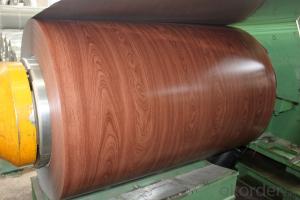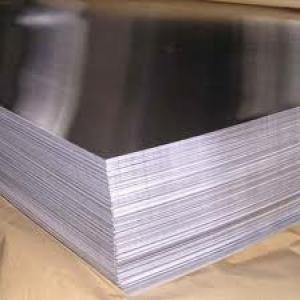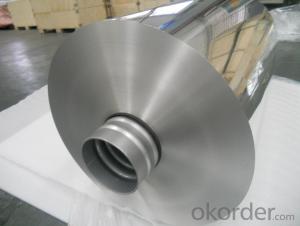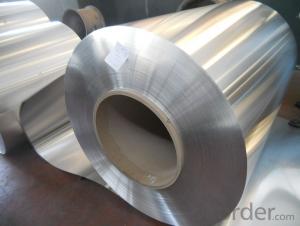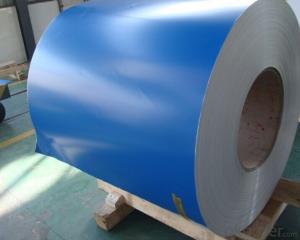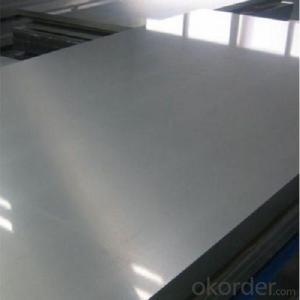Aluminium Coil Roll Painting for Aluminium Composite Pannel
- Loading Port:
- Shanghai
- Payment Terms:
- TT OR LC
- Min Order Qty:
- 8 m.t.
- Supply Capability:
- 2000 m.t./month
OKorder Service Pledge
OKorder Financial Service
You Might Also Like
Item specifice
Structure of Aluminium Coil Roll Painting for Aluminium Composite Pannel Description:
Coated aluminum coil/sheet are of a wide range of colors, which gives wonderful appearance no matter in residential and commercial constructions of great exhibition centers.
The coated aluminum coil/sheet have been widely used in the fields of construction and decoration( garage doors, ceiling etc.), electronic appliances, lighting decoration, air-condition air pipes, sandwich panels and drainages etc.
Main Features of the Aluminium Coil Roll Painting for Aluminium Composite Pannel:
1) High flexibility
2) Impact resistance
3) Excellent weather-proof durability
4) Anti-ultraviolet
5) High erosion resist
Images of the Aluminium Coil Roll Painting for Aluminium Composite Pannel:
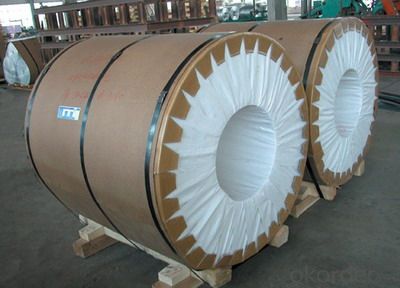
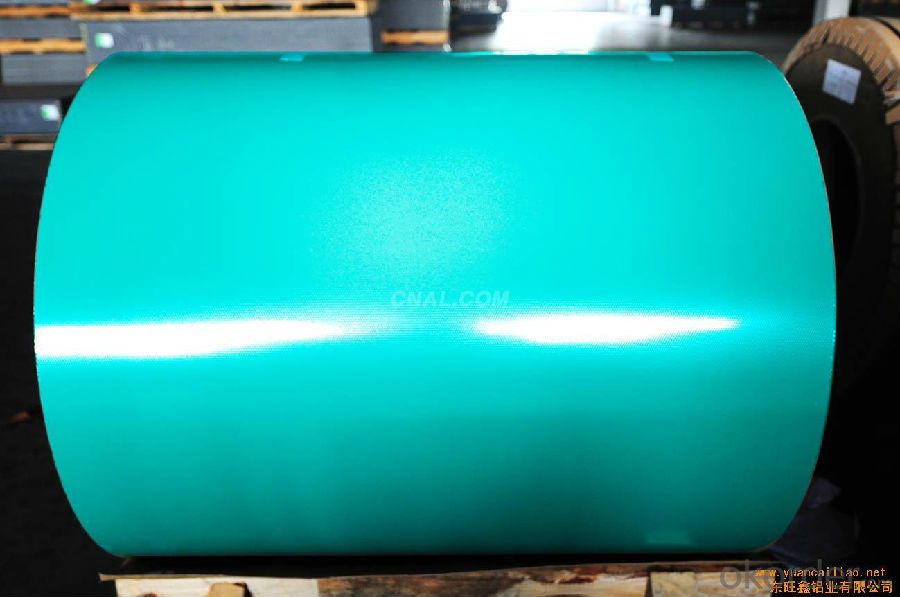
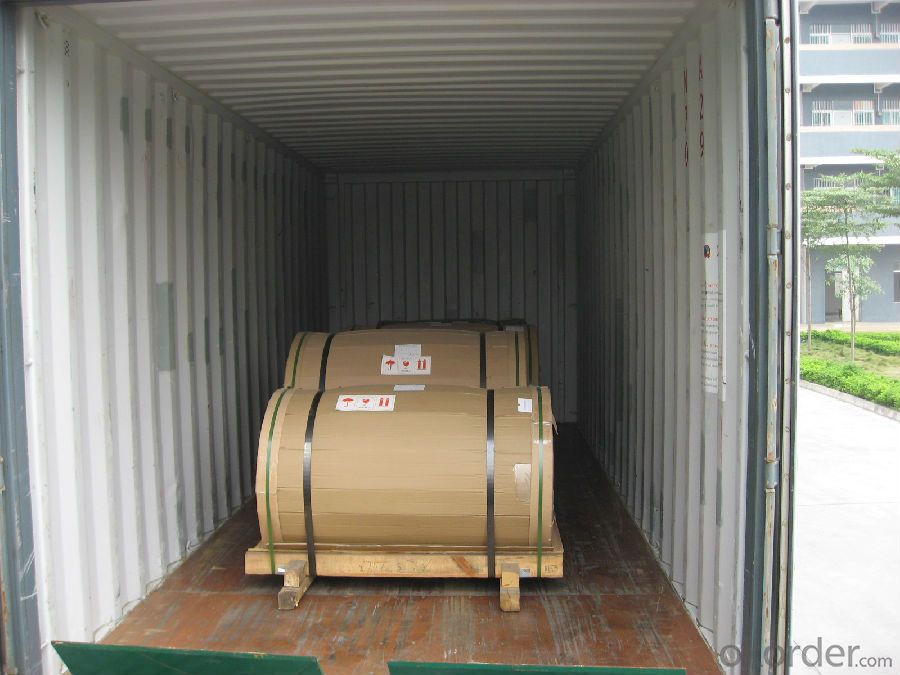
Specifications of Aluminium Coil Roll Painting for Aluminium Composite Pannel:
Alloy | A1100,A3003,A1050,A8011 etc |
Temper | H16,H18,H24 |
Thickness | From 0.024mm to 1.2mm |
Width | Standard width:1240mm |
Special width:1300mm,1520mm,1570mm,1595mm | |
Diameter | Standard dia:1200mm |
Interior dia:150mm,405mm,505mm | |
Weight | 2.5 T/coil,3.0 T/coil |
Coating | PE, PVDF, AC |
Surface | Embossed, mill finish, coated |
Color | AS to code RAL |
Gloss | 10-90%(EN ISO-2813:1994) |
Coating Thickness | PE: more than 18 micron |
PVDF: more than 25 micron | |
Coating Hardness (pencil resistance) | More than 2h |
Coating adhesion | 5J(EN ISO-2409:1994) |
Impact Resistance | No peeling or cracking(50 kg/cm,ASTMD-2794:1993) |
Flexibility (T-bend) | 2T |
MEK resistance | More than 100 |
FAQ Aluminium Coil Roll Painting for Aluminium Composite Pannel:
a.What is monthly capacity
---CNBM is one stated own company and our monthly capacity is about 2000tons.
b. Now which countries do you export your goods?
---Now we export to South East Asia,Africa, North America,South America ect.
- Q:Are aluminum sheets suitable for marine vessel construction?
- Indeed, marine vessel construction can make use of aluminum sheets. Aluminum, a material that is both lightweight and strong, offers excellent resistance to corrosion in marine environments. It is commonly utilized in the construction of various marine vessels, including boats, ships, and yachts. The use of aluminum sheets in marine vessel construction has a significant advantage in terms of its high strength-to-weight ratio. This allows for the creation of lighter vessels, which can lead to improved fuel efficiency, increased speed, and enhanced handling. Additionally, the lightweight nature of aluminum facilitates easier transportation and maneuverability during the construction process. Another notable benefit of utilizing aluminum sheets for marine vessel construction is their exceptional resistance to corrosion. Aluminum naturally develops a protective oxide layer on its surface, which prevents further oxidation and corrosion. This makes aluminum an ideal choice for marine environments, where vessels are constantly exposed to saltwater, humidity, and other corrosive elements. Moreover, aluminum sheets can be easily fabricated and welded, providing flexibility in the design and construction of marine vessels. They can be shaped into various forms, allowing for the creation of intricate hull structures and interior components. Aluminum also possesses good thermal conductivity, which aids in regulating temperature within the interior spaces of marine vessels. While aluminum sheets offer numerous advantages for marine vessel construction, it is important to consider certain factors. Aluminum is susceptible to galvanic corrosion when it comes into contact with certain metals, such as steel or bronze. Therefore, proper insulation and anti-corrosion measures should be implemented to prevent galvanic corrosion in aluminum-based vessels. In conclusion, aluminum sheets are highly suitable for marine vessel construction. Their lightweight nature, high strength-to-weight ratio, resistance to corrosion, and ease of fabrication make them an ideal choice for building durable and efficient marine vessels. However, it is crucial to take proper precautions to prevent galvanic corrosion when aluminum is used alongside other metals.
- Q:Can aluminum sheet be used for electrical grounding applications?
- Indeed, aluminum sheet finds utility in electrical grounding applications. It possesses remarkable conductive properties, rendering it apt for employment in grounding systems. Its low resistance and exceptional electrical conductivity make it a common choice in diverse electrical applications. With the capability to proficiently transport electrical current and securely disperse it into the ground, aluminum sheet guarantees the safeguarding of electrical systems and averts potential electrical dangers. Moreover, the lightweight and corrosion-resistant attributes of aluminum establish it as a favored option for grounding applications across numerous industries, encompassing construction, automotive, and aerospace.
- Q:Can aluminum sheet withstand heavy loads?
- Indeed, the durability of aluminum sheet is such that it can endure substantial loads. Renowned for its exceptional strength-to-weight ratio, aluminum proves to be an exceptional selection for endeavors necessitating both resilience and load-bearing capacities. Notably prevalent in sectors like aerospace, automotive, construction, and marine, aluminum sheets are frequently employed in scenarios involving weighty burdens. Moreover, the innate corrosion resistance of aluminum further fortifies its capacity to bear heavy loads for extensive durations. Nevertheless, it is crucial to take into account the precise grade and thickness of the aluminum sheet, as diverse alloys and thicknesses yield differing load capacities.
- Q:Are aluminum sheets resistant to impact?
- Yes, aluminum sheets are generally resistant to impact. Aluminum is a lightweight metal that has high strength and toughness, making it capable of withstanding impact forces. It has excellent energy absorption properties, which means it can absorb and dissipate the energy generated by an impact, minimizing damage to the sheet. Additionally, aluminum sheets can be further strengthened through various processes such as heat treatment or alloying, making them even more resistant to impact. However, the impact resistance of aluminum sheets can vary depending on the specific alloy and thickness used.
- Q:Can aluminum sheets be used in the automotive industry?
- Yes, aluminum sheets can be used in the automotive industry.
- Q:i bought a light fixture for my bathroom wall and the ground wire is aluminum and the existing ground wire in the wall is copper,so i would like to know if i can join them and if so,how?
- I doubt the ground wire is Aluminum, more likely it is tinned copper. Check by bending it, copper bends easier than aluminum, compare to the fixture wires. To connect copper wire to aluminum wire you need special conductive paste and connectors certified for CU/ AL.
- Q:How do aluminum sheets perform in terms of fire resistance?
- Aluminum sheets have excellent fire resistance properties. Aluminum is a non-combustible material, meaning it does not burn or contribute to the spread of fire. In fact, aluminum has a high melting point of around 660 degrees Celsius (1220 degrees Fahrenheit), which makes it highly resistant to heat. When exposed to fire, aluminum forms a thin layer of oxide on its surface, which acts as a protective barrier against further oxidation. This oxide layer is highly stable and helps to prevent the material from igniting or releasing flammable gases. Additionally, aluminum sheets have low thermal conductivity, which means they do not transfer heat as easily as other metals, further enhancing their fire resistance. These fire-resistant properties make aluminum sheets a preferred choice in various applications where fire safety is a concern, such as building construction, aerospace industry, automotive manufacturing, and electrical enclosures. Aluminum sheets are often used in exterior cladding, roofing, and insulation systems, where they provide an additional layer of protection against fire hazards. It is important to note that while aluminum sheets themselves are highly fire-resistant, the overall fire performance of a structure or system depends on the design, installation, and other materials used in combination with aluminum sheets. Therefore, it is crucial to follow appropriate fire safety regulations and guidelines to ensure optimal fire resistance in any given application.
- Q:Can aluminum sheets be easily shaped or bent?
- Yes, aluminum sheets can be easily shaped or bent. Aluminum is known for its excellent malleability and ductility, which allows it to be easily formed into various shapes and bends. It can be manipulated using a variety of techniques such as rolling, pressing, or even using hand tools. The malleability of aluminum makes it a preferred choice in industries such as automotive, aerospace, and construction, where it is commonly used in the production of parts and structures that require complex shapes and bends. Additionally, aluminum's lightweight and corrosion-resistant properties further contribute to its suitability for shaping and bending processes.
- Q:What is the thickness range of aluminum sheets?
- The thickness range of aluminum sheets can vary depending on the specific application and industry standards. However, commonly available aluminum sheets typically range in thickness from 0.006 inches (0.15mm) to 0.25 inches (6.35mm). For more specialized applications, thicker aluminum sheets may be available. It is important to note that different alloys and grades of aluminum may have different thickness ranges, so it is essential to consult the specific requirements and standards of the intended use case.
- Q:Does aluminum sheet require special handling during transportation?
- Transporting aluminum sheets requires special handling due to their lightweight nature and susceptibility to damage if mishandled. To prevent scratching, bending, or denting, it is necessary to take specific precautions. Packaging and securing the sheets in a manner that restricts movement and offers sufficient protection against impacts is crucial. Furthermore, it is important to transport aluminum sheets separately from heavy objects or materials to avoid potential damage caused by their weight. In conclusion, ensuring the safe transportation of aluminum sheets necessitates giving them special care and attention.
1. Manufacturer Overview |
|
|---|---|
| Location | |
| Year Established | |
| Annual Output Value | |
| Main Markets | |
| Company Certifications | |
2. Manufacturer Certificates |
|
|---|---|
| a) Certification Name | |
| Range | |
| Reference | |
| Validity Period | |
3. Manufacturer Capability |
|
|---|---|
| a)Trade Capacity | |
| Nearest Port | |
| Export Percentage | |
| No.of Employees in Trade Department | |
| Language Spoken: | |
| b)Factory Information | |
| Factory Size: | |
| No. of Production Lines | |
| Contract Manufacturing | |
| Product Price Range | |
Send your message to us
Aluminium Coil Roll Painting for Aluminium Composite Pannel
- Loading Port:
- Shanghai
- Payment Terms:
- TT OR LC
- Min Order Qty:
- 8 m.t.
- Supply Capability:
- 2000 m.t./month
OKorder Service Pledge
OKorder Financial Service
Similar products
New products
Hot products
Related keywords
